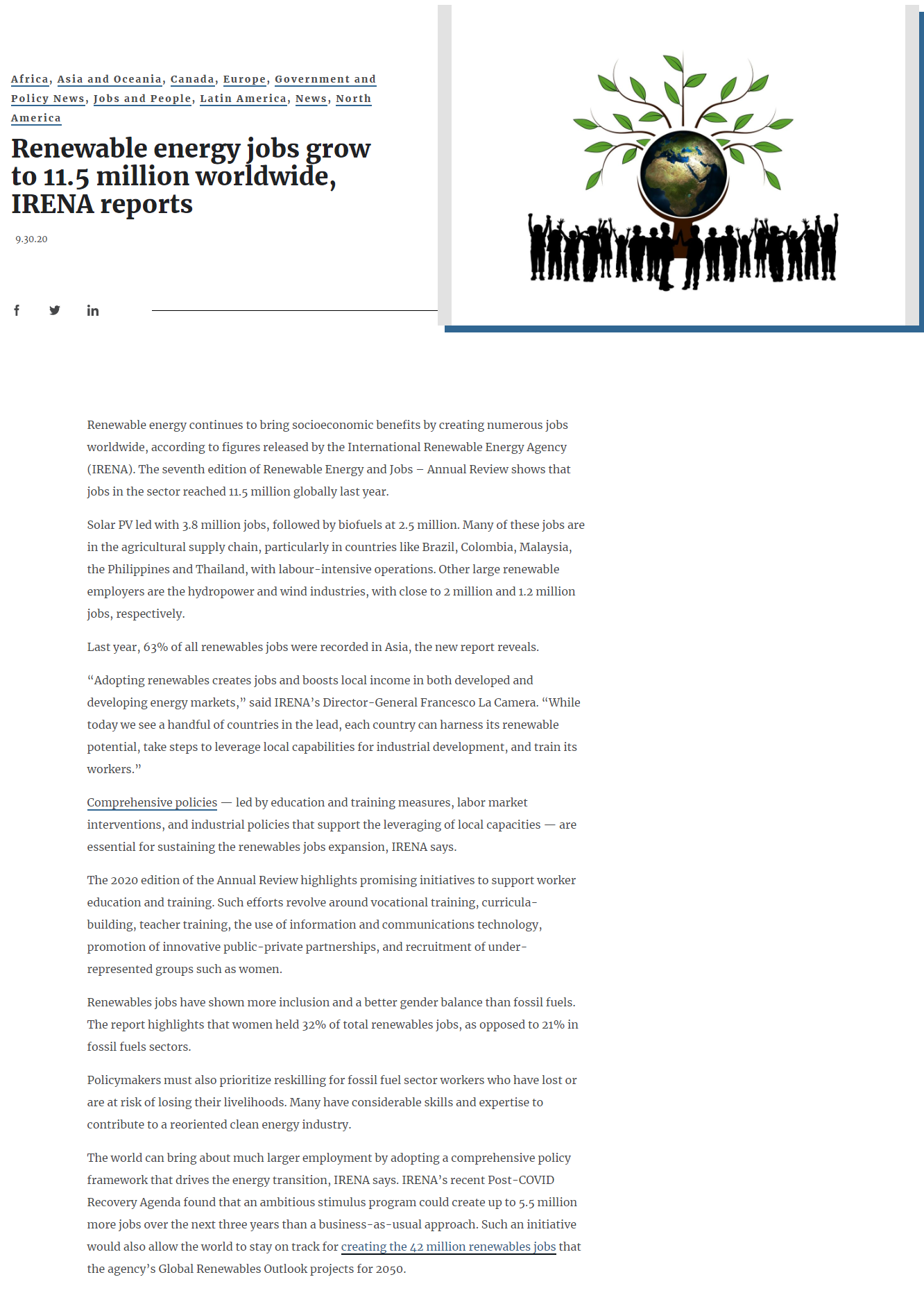Hydro Review • Renewable energy jobs grow to 11.5 million worldwide, IRENA reports
Renewable energy continues to bring socioeconomic benefits by creating numerous jobs worldwide, according to figures released by the International Renewable Energy Agency (IRENA). The seventh edition of Renewable Energy and Jobs – Annual Review shows that jobs in the sector reached 11.5 million globally last year.
Solar PV led with 3.8 million jobs, followed by biofuels at 2.5 million. Many of these jobs are in the agricultural supply chain, particularly in countries like Brazil, Colombia, Malaysia, the Philippines and Thailand, with labour-intensive operations. Other large renewable employers are the hydropower and wind industries, with close to 2 million and 1.2 million jobs, respectively.
Last year, 63% of all renewables jobs were recorded in Asia, the new report reveals.
“Adopting renewables creates jobs and boosts local income in both developed and developing energy markets,” said IRENA’s Director-General Francesco La Camera. “While today we see a handful of countries in the lead, each country can harness its renewable potential, take steps to leverage local capabilities for industrial development, and train its workers.”
Comprehensive policies — led by education and training measures, labor market interventions, and industrial policies that support the leveraging of local capacities — are essential for sustaining the renewables jobs expansion, IRENA says.
The 2020 edition of the Annual Review highlights promising initiatives to support worker education and training. Such efforts revolve around vocational training, curricula-building, teacher training, the use of information and communications technology, promotion of innovative public-private partnerships, and recruitment of under-represented groups such as women.
Renewables jobs have shown more inclusion and a better gender balance than fossil fuels. The report highlights that women held 32% of total renewables jobs, as opposed to 21% in fossil fuels sectors.
Policymakers must also prioritize reskilling for fossil fuel sector workers who have lost or are at risk of losing their livelihoods. Many have considerable skills and expertise to contribute to a reoriented clean energy industry.
The world can bring about much larger employment by adopting a comprehensive policy framework that drives the energy transition, IRENA says. IRENA’s recent Post-COVID Recovery Agenda found that an ambitious stimulus program could create up to 5.5 million more jobs over the next three years than a business-as-usual approach. Such an initiative would also allow the world to stay on track for creating the 42 million renewables jobs that the agency’s Global Renewables Outlook projects for 2050.
Fuente: Hydro Review



